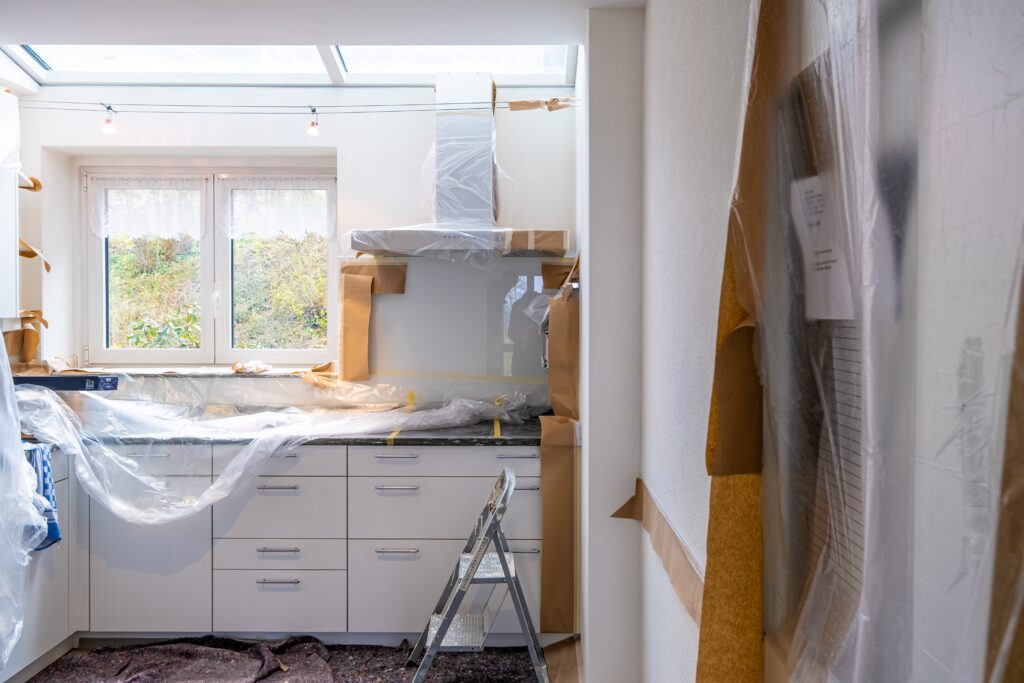Planning to give your home an upgrade? Renovation projects can be daunting and time-consuming, but the results are usually worth it. From deciding on a budget and hiring the right professionals to select materials that match your aesthetic, there is plenty of preparation necessary for successful renovations. To help you stay organized during this process, we’ve put together some key tips and advice about how to plan a renovation project. Here’s what you need to know before getting started with any home upgrades or remodels!
Brainstorm ideas for renovations
When planning a home renovation, start by brainstorming ideas for your project. This involves creating a list of must-haves and would-be nice-to-haves. Must-haves are the essential elements that you need to include in your renovation, such as fixing structural issues or updating outdated features. On the other hand, would-be nice-to-haves are the extra touches or upgrades that you would like to add if your budget and timeline permit. By creating this list, you can prioritize your renovation goals and make informed decisions about where to spend your money. It will also help guide discussions with contractors and designers, ensuring that everyone is on the same page about your vision for the project.
Compare contractors and products online to find the best deals
With so many options available, it can be overwhelming to make the best choices for your project. One useful tip is to compare contractors and products online to find the best deals. This allows you to see reviews, prices, and services offered all in one place. For example, if you’re looking to work on your roof, check for Indianapolis roofers or other professionals in your area, so you can easily compare their services and prices to find the best fit for your budget and needs. Ask for recommendations from friends or family as well, as personal experiences can also help guide your decision-making process.
Research your local area to learn about zoning laws and regulations
Before diving into a renovation project, research your local area and learn about zoning laws and regulations. These laws dictate what you can and cannot do with your property, which can impact the scope of your renovations. For example, some areas may have restrictions on the height or size of new structures, as well as limitations on noise levels during construction. By familiarizing yourself with these laws, you can avoid any potential roadblocks or costly mistakes during the renovation process. You may also need to obtain permits for certain projects, so be sure to check with your local government offices for any necessary paperwork and approvals. It’s always better to be informed beforehand rather than face consequences later on.

Decide which renovations will give you the most bang for your buck
When strategizing home upgrades, carefully select renovations that offer the greatest return on investment. This means identifying which improvements will not only enhance your living space but also increase the value of your home. For example, kitchen and bathroom remodels tend to have a high return on investment, while swimming pools or luxury features may not necessarily provide the same financial benefit. However, it’s important to also consider your own needs and preferences when making these decisions. While some renovations may not add as much value to your home, they can greatly improve your quality of life and enjoyment of your space. Strike a balance between practicality and personal preference when deciding on renovations that will give you the best return on investment.
Set a budget
Setting a budget is crucial when planning for home renovations. It’s important to determine how much money you are willing and able to spend on each project before getting started. This will help guide your decisions and prevent overspending. Take into account the cost of materials, labor, and any unexpected expenses that may arise during the renovation process. It’s also important to leave room in your budget for contingency funds, in case something goes wrong or you decide to make changes along the way.
Map out a timeline
In addition to setting a budget, map out a timeline for your renovation projects. This means deciding when each project should be completed to stay within budget and avoid stress. Keep in mind that some renovations may take longer than others, so be sure to factor that into your timeline. It’s also important to consider any upcoming events or deadlines, such as holidays or family gatherings so that you can plan accordingly and avoid any disruptions to your daily routine.
Planning for home upgrades requires careful consideration and preparation. Take your own needs and preferences into account when making decisions about which improvements to prioritize. With the right approach and attention to detail, your home upgrades can transform your living space into the dream home you’ve always wanted. Happy renovating!






